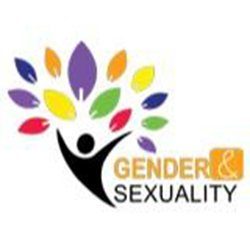About Event:
Gender and sexual equality is a human right that is enshrined in a number of declarations and conventions, including the Convention on the Elimination of all Forms of Discrimination against Women (CEDAW). In many parts of the world, countries hail their human rights orientation and have signed some or all of the International and regional conventions and may even have local legislation that purport a human rights orientation, thereby committing to uphold the human rights and dignity of all its people. Yet within many of these same countries women, people with disabilities, non-conforming people, minority ethnic groups and some race groups, struggle with issues of unequal access to opportunities, employment, services, etc, and in general their capabilities are compromised. In addition, they face challenges such as discrimination, violence, isolation and other social and economic problems. Hence the question emerges, has the process of enshrining rights through conventions, policies and legislation been adequate to tackle issues of sexual and gender-based inequality? On the other hand, if we consider contexts in which rights are not entrenched in policy/legislations and countries that have not sign such conventions, issues of discrimination, hate crime and human rights violations are exacerbated. One could argue then, that rights in policy and legislation are an important basis for creating social, cultural, sexual, economic, political, civil, religious, gender and other types of justice. Nevertheless, whilst a human rights framework seems to be a prerequisite for the promotion of rights, it is not a guarantee that policies and legislation will be translated into action. Hence, at this conference it is critical that we engage with notions of rights and consider to what extent a rights framework has facilitated sexual and gender rights/justice. At the same time we need to critically engage with what more needs to be done to ensure that rights become a reality in contexts where there are policy and legislative commitments to human rights? Furthermore, we need to deliberate on what can be done to assist in those contexts where there are serious problems of gender inequality and discrimination against people either because of their gender or sexuality, and there are limited or no policy/legislative commitment to human or sexual rights and gender justice? What are the nuanced, creative and varied options and alternatives for ensuring sexual rights and gender justice for all people in various contexts? It is in this context, the 3rd International Conference on Gender and Sexuality 2020 encourages academics, researchers, activists, practitioners, human rights champions, government officials, diplomats and other interested parties to provide your unique perspectives and knowledge on these and other matters related to gender and sexuality.
Date and Time:
15 Oct 2020-16 Oct 2020 ,
04:00 am-05:30 am

